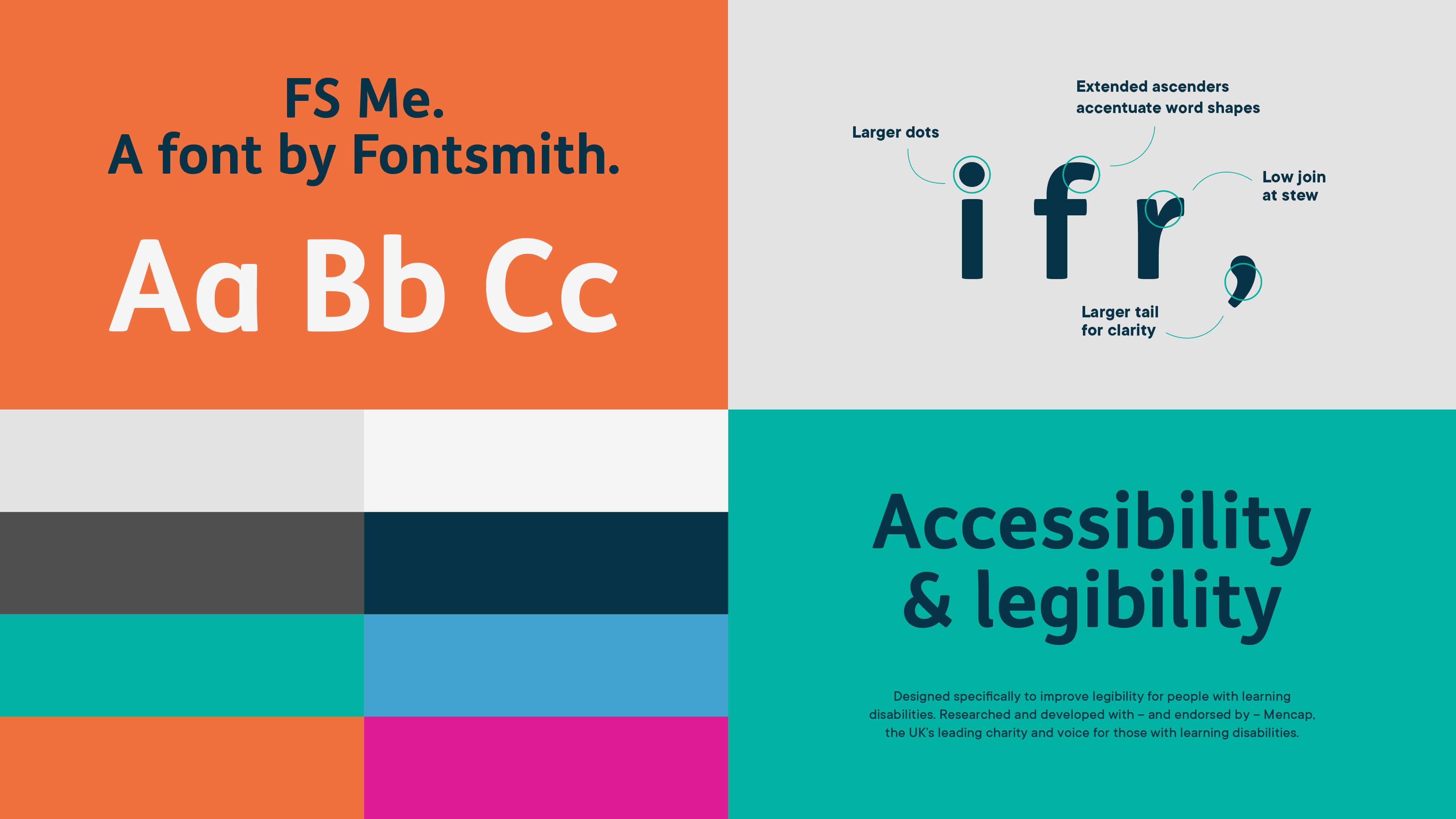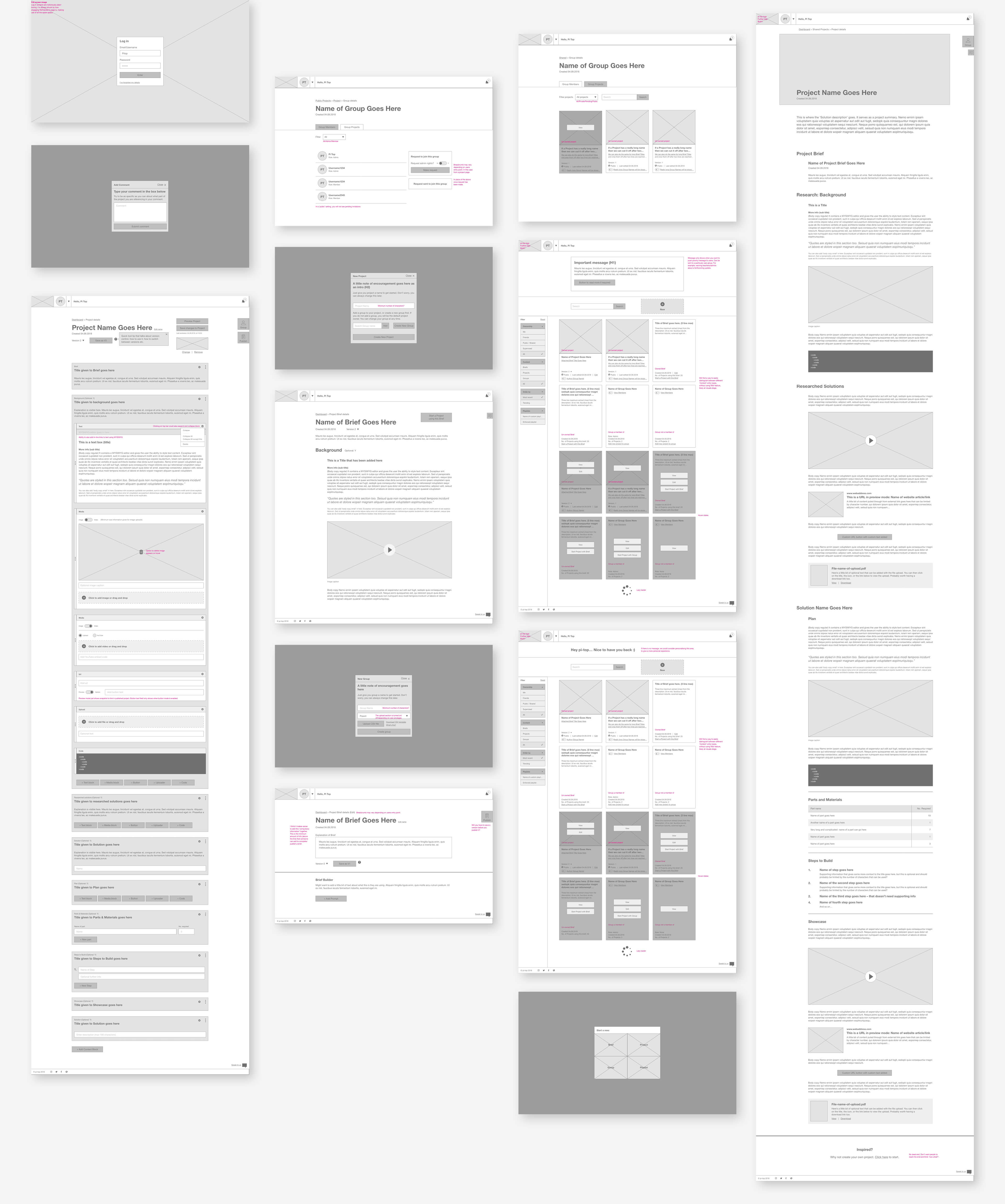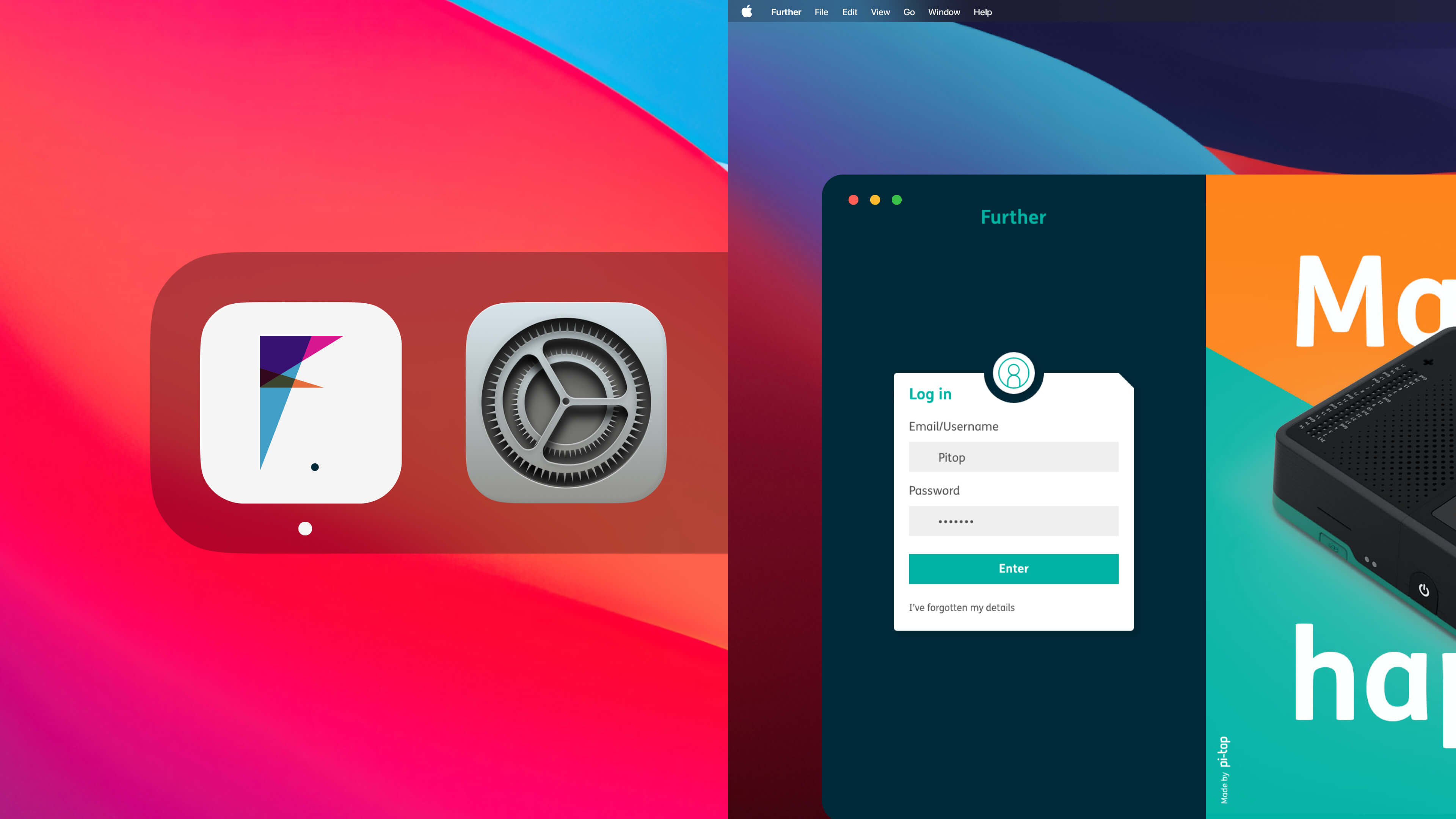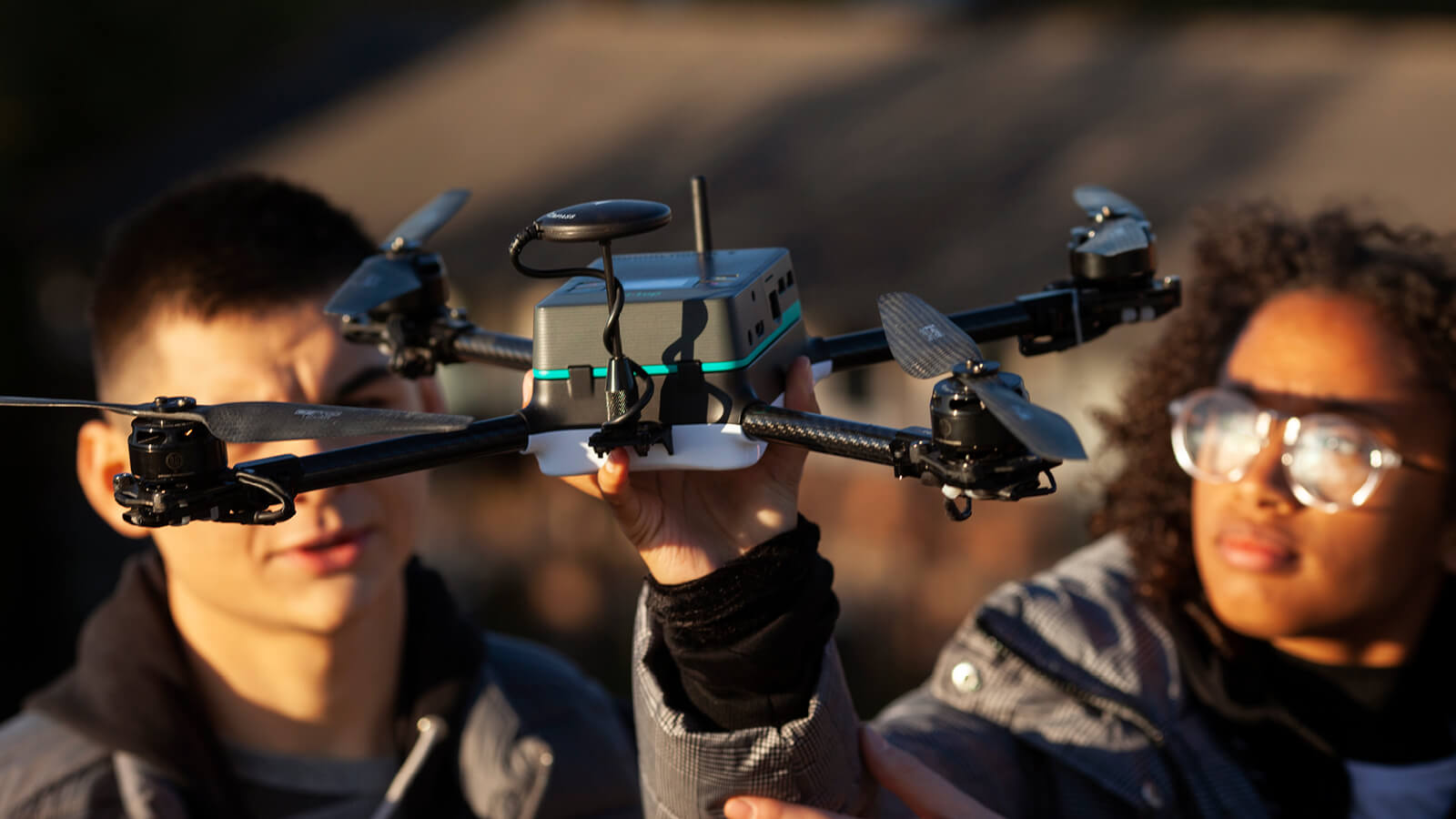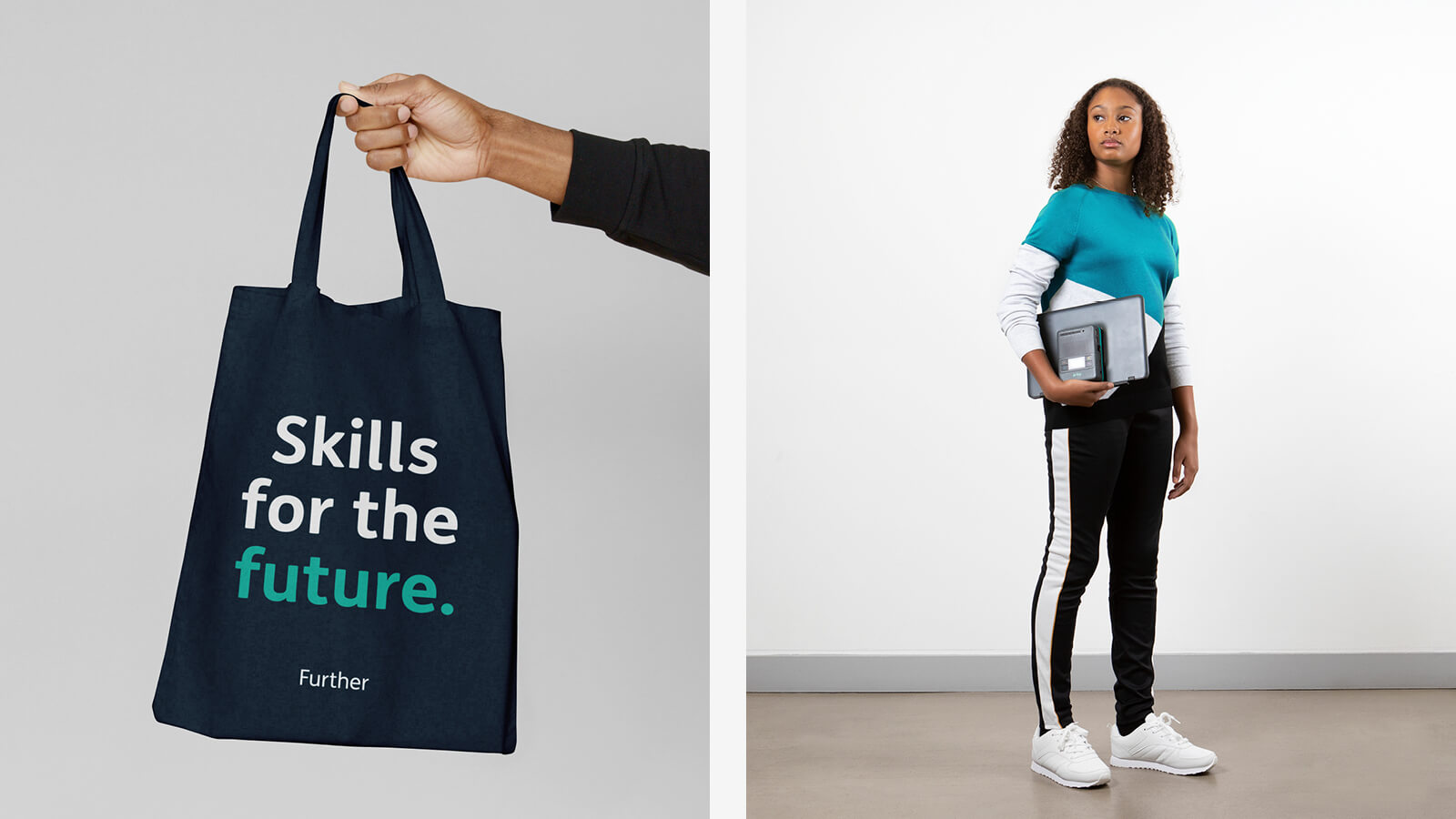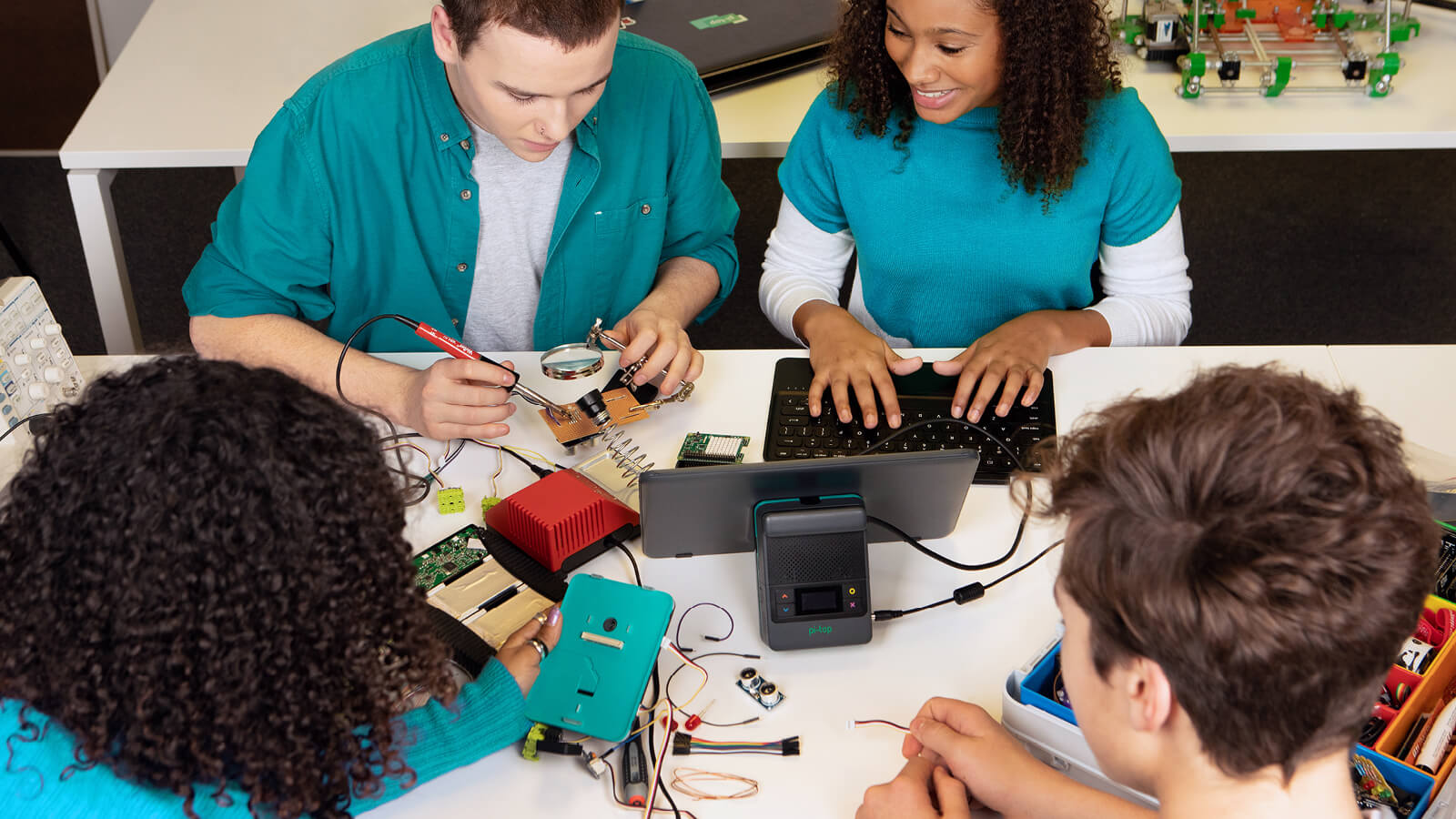Challenge:
Pi-top offers its young audience the chance to build future-proof skills through hands-on computer science and robotics projects. They approached us with the idea of creating a disruptive education community platform that could be used inside and outside of the classroom, to showcase interesting and innovative coding and engineering projects.
Within traditional academic establishments there is the tendency to dissuade ‘plagiarism’. However pi-top wished to re-frame this as collaboration, through opensource sharing of ideas, and introduce transparency by automating the citing of reference sources.
Strategy:
Peer generated content comes with the complexity of ensuring a consistent level of quality. This is true of both the physical content and the way in which it is presented. It was critical to design a system capable of being flexible enough to showcase projects with a sliding scale of complexity, but visually controlled enough that information is displayed in a consistent and useable manner, therefore maintaining the integrity of both the pi-top and Further brands. From a usability standpoint, we identified the need to design a system that could effortlessly flip between edit and present modes.
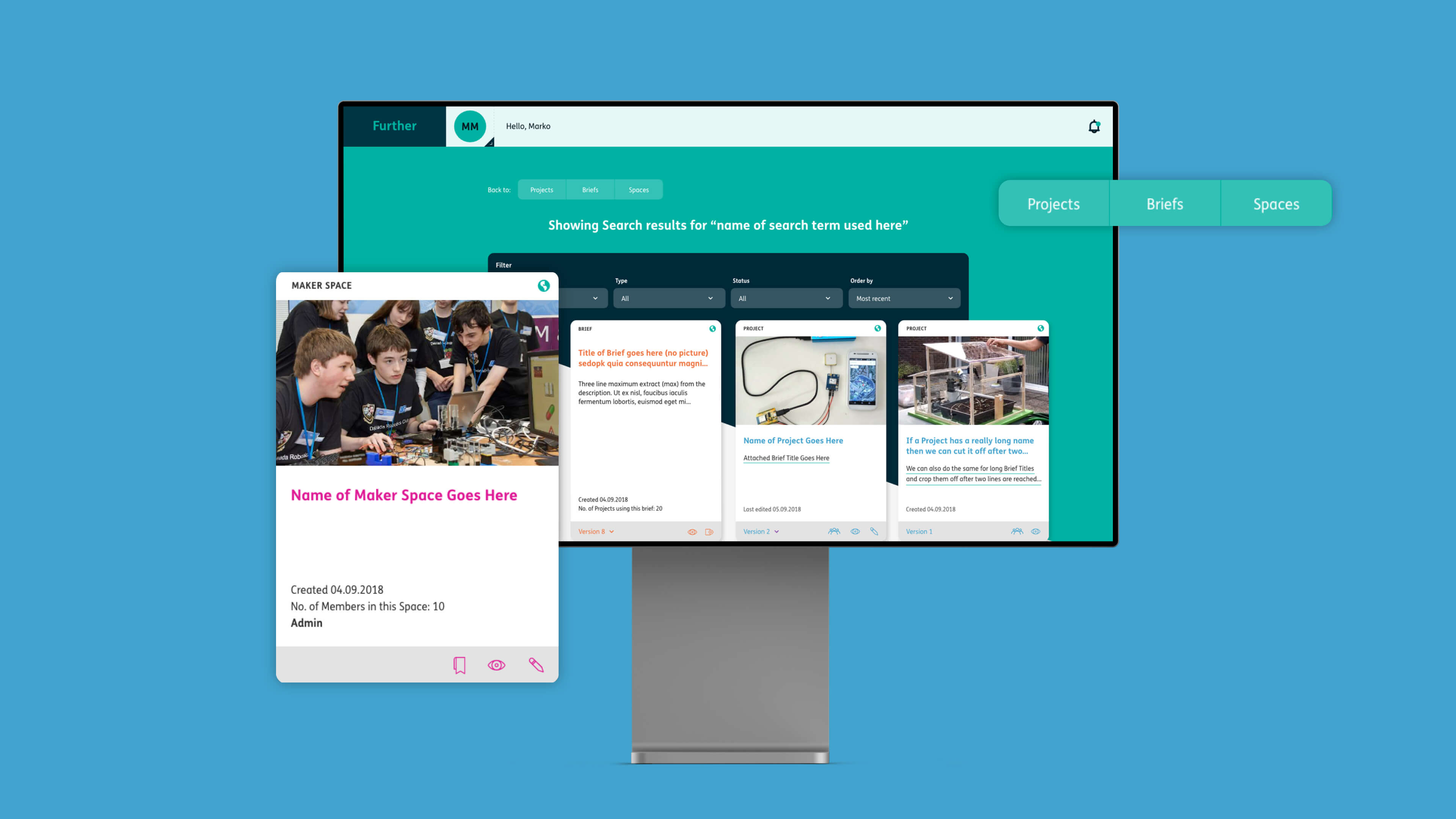
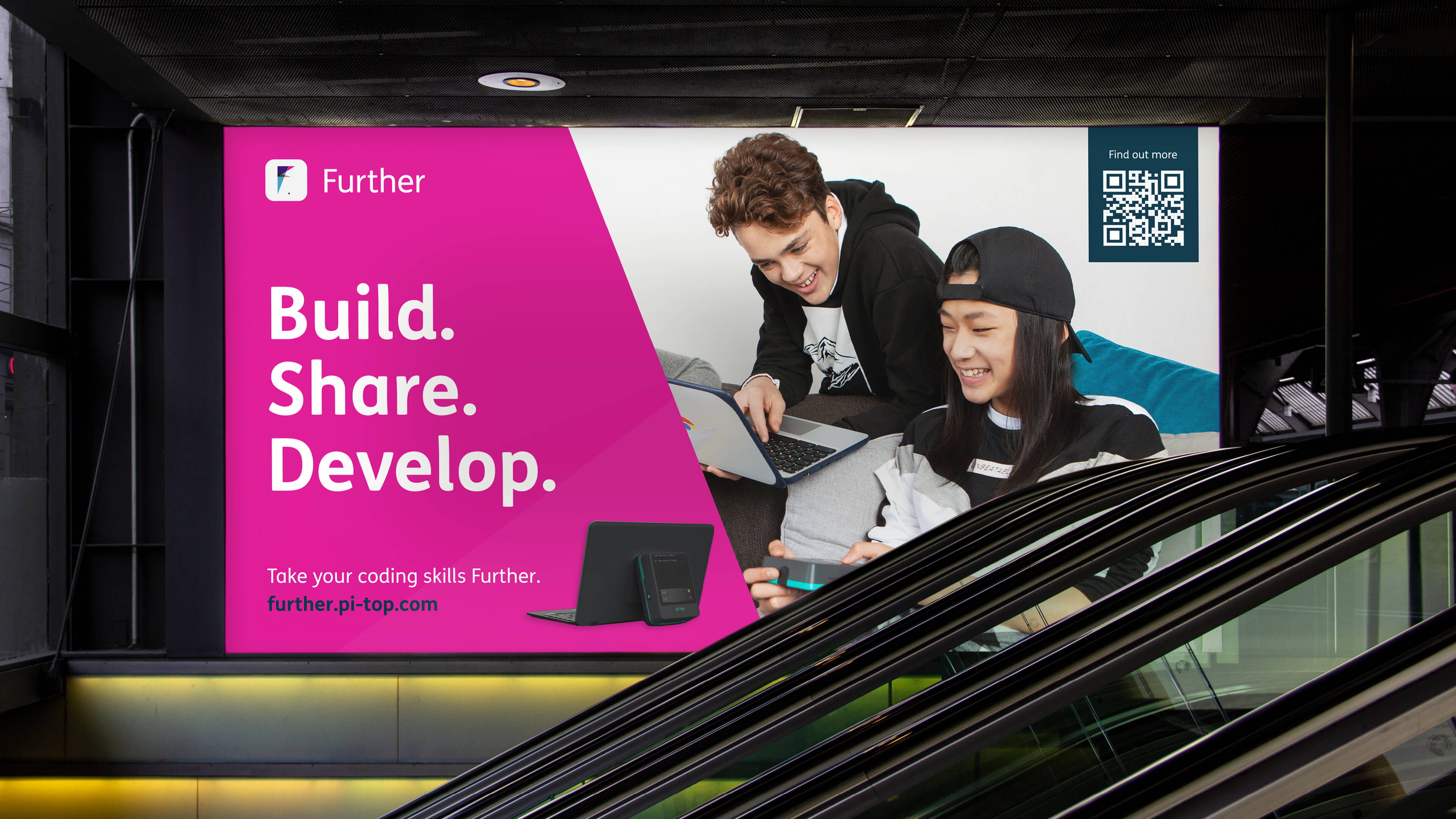
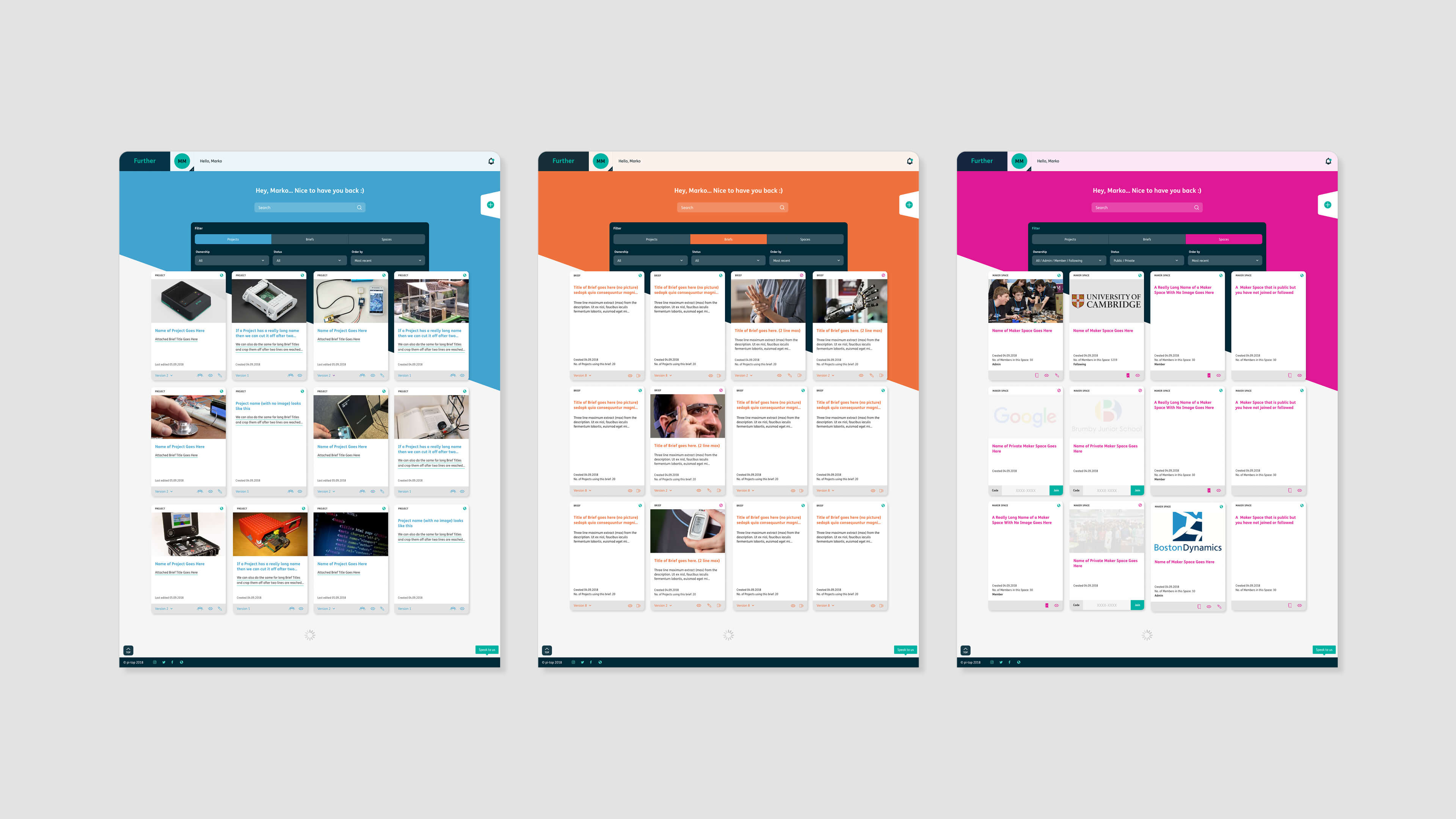
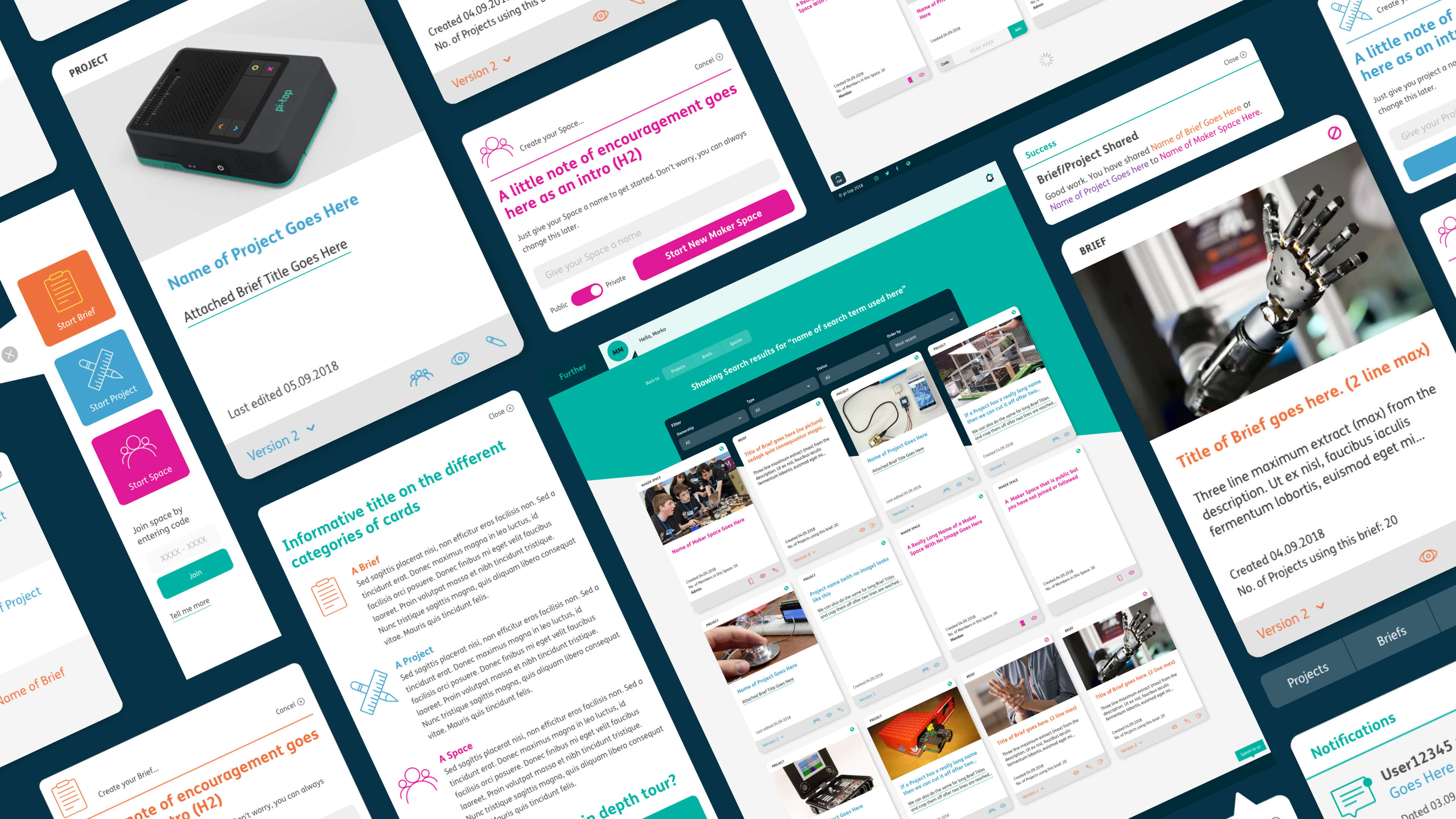
Visual development:
One of the greatest challenges was to offer a community platform with accessibility at its core. Aesthetic decisions focused on colours with excellent contrast, large imagery and a typeface developed with – and endorsed by – Mencap, the UK’s leading charity and voice for those with learning disabilities.
